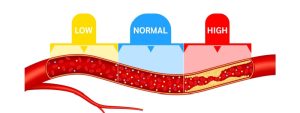Maintaining healthy cholesterol levels is vital for heart health. High cholesterol can lead to serious cardiovascular conditions, including heart disease and stroke. Lifestyle choices play a significant role in managing cholesterol levels, with smoking and alcohol consumption being two major factors. This blog post will explore how smoking and alcohol affect cholesterol levels and provide guidance on managing these habits for better heart health.
Cholesterol is a fatty substance necessary for building cell membranes and producing hormones. It travels through the bloodstream in two forms:
- Low-Density Lipoprotein (LDL): Known as “bad” cholesterol, high levels of LDL can lead to plaque buildup in the arteries.
- High-density lipoprotein (HDL): Known as “good” cholesterol, HDL helps remove LDL cholesterol from the bloodstream.
How Smoking Affects Cholesterol Levels
Smoking has a detrimental impact on cholesterol levels and overall cardiovascular health:
- Decreases HDL Cholesterol: Smoking reduces levels of HDL cholesterol, the type that helps remove LDL cholesterol from the arteries. Lower HDL levels mean less “good” cholesterol to clear out the “bad” cholesterol.
- Increases LDL Cholesterol: Smoking can increase the levels of LDL cholesterol. Higher LDL levels contribute to forming plaques in the arteries, leading to atherosclerosis or hardening of the arteries.
- Promotes Plaque Buildup: Chemicals in cigarette smoke, such as acrolein, can damage the lining of the arteries. This damage makes it easier for cholesterol to enter the arterial walls and form plaques.
- Triggers Inflammation: Smoking causes inflammation in the arteries, leading to more plaque formation and increasing the risk of blood clots.
- Affects Blood Vessels: Smoking can cause the blood vessels to constrict, reducing blood flow and making it harder for HDL cholesterol to clear LDL cholesterol from the bloodstream.
How Alcohol Affects Cholesterol Levels
Alcohol consumption has both positive and negative effects on cholesterol levels, depending on the amount consumed:
Moderate Drinking: Moderate alcohol consumption can have some beneficial effects on cholesterol levels. For most adults, moderate drinking means up to one drink per day for women and up to two drinks per day for men.
- Increases HDL Cholesterol: Moderate alcohol intake can increase HDL cholesterol levels, which helps reduce the risk of heart disease.
- Potential Heart Benefits: Some studies suggest that moderate alcohol consumption may reduce the risk of heart disease due to its effects on HDL cholesterol.
Excessive Drinking: Drinking too much alcohol can have harmful effects on cholesterol levels and overall health.
- Raises Triglycerides: Excessive alcohol consumption can increase triglyceride levels, a type of fat in the blood that can raise the risk of heart disease.
- Leads to Weight Gain: Alcohol is high in calories and can contribute to weight gain, associated with higher LDL cholesterol and lower HDL cholesterol levels.
- Liver Damage: Heavy drinking can lead to liver damage, which impairs the liver’s ability to manage cholesterol levels effectively.
Managing Smoking and Alcohol Consumption for Better Cholesterol Levels
- Quit Smoking: Quitting smoking can significantly improve your cholesterol levels and overall heart health. The benefits of quitting begin almost immediately, with HDL cholesterol levels starting to improve within weeks. Various resources, such as counselling, medications, and support groups, are available to help you quit smoking.
- Moderate Alcohol Intake: If you drink alcohol, do so in moderation. Stick to the recommended guidelines of one drink per day for women and two for men. If you do not currently drink alcohol, it is not necessary to start for health reasons.
- Healthy Lifestyle Choices: In addition to managing smoking and alcohol consumption, adopting a healthy lifestyle can further improve cholesterol levels. This includes eating a balanced diet of fruits, vegetables, whole grains, and lean proteins, engaging in regular physical activity, maintaining a healthy weight, and managing stress.
Smoking and excessive alcohol consumption have significant negative impacts on cholesterol levels and overall heart health. Quitting smoking and moderating alcohol intake are crucial steps in managing cholesterol levels and reducing the risk of cardiovascular diseases. By making these lifestyle changes and adopting healthy habits, you can protect your heart and improve your overall well-being. Always consult your healthcare provider for personalised advice and support in managing your cholesterol levels and lifestyle choices.




